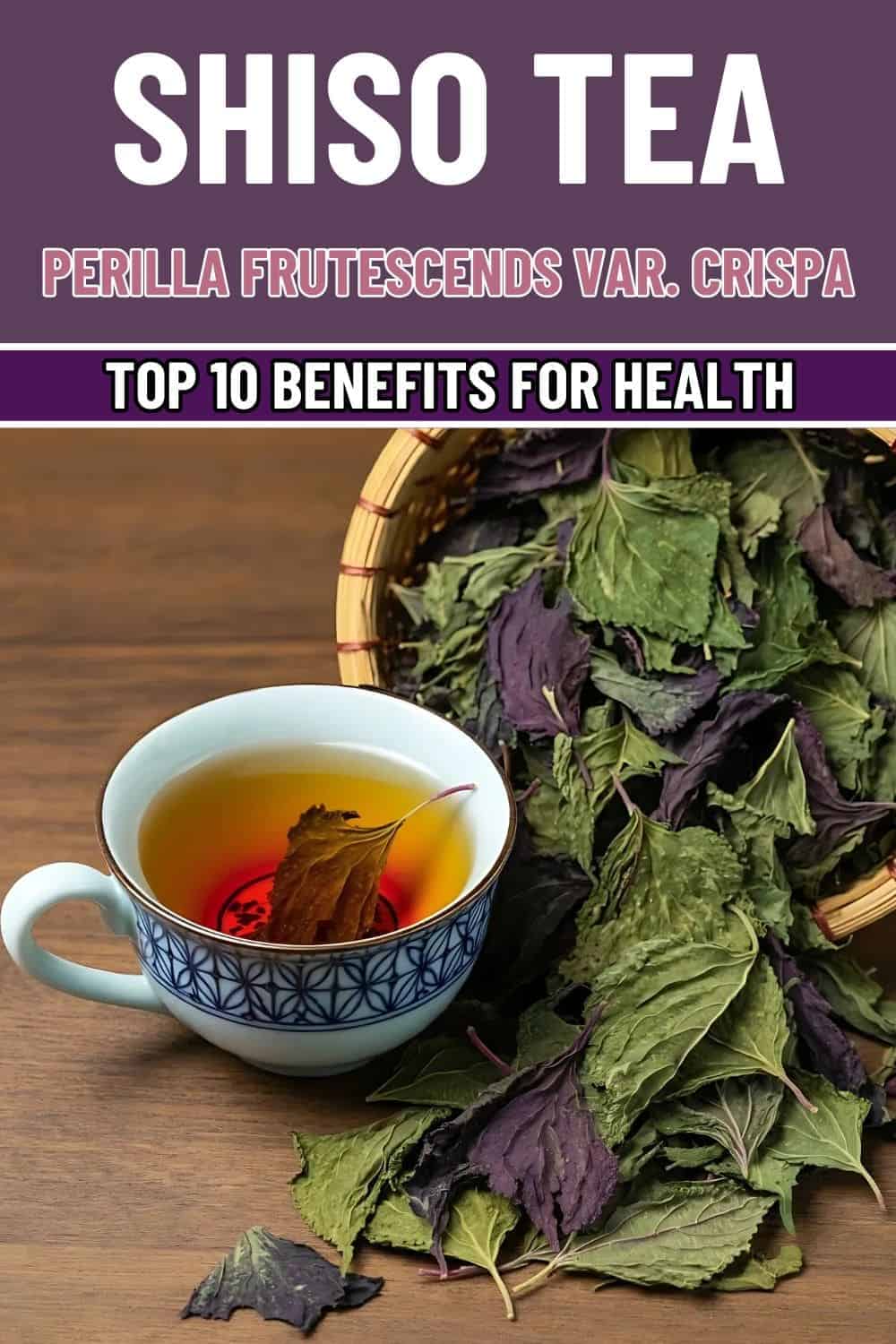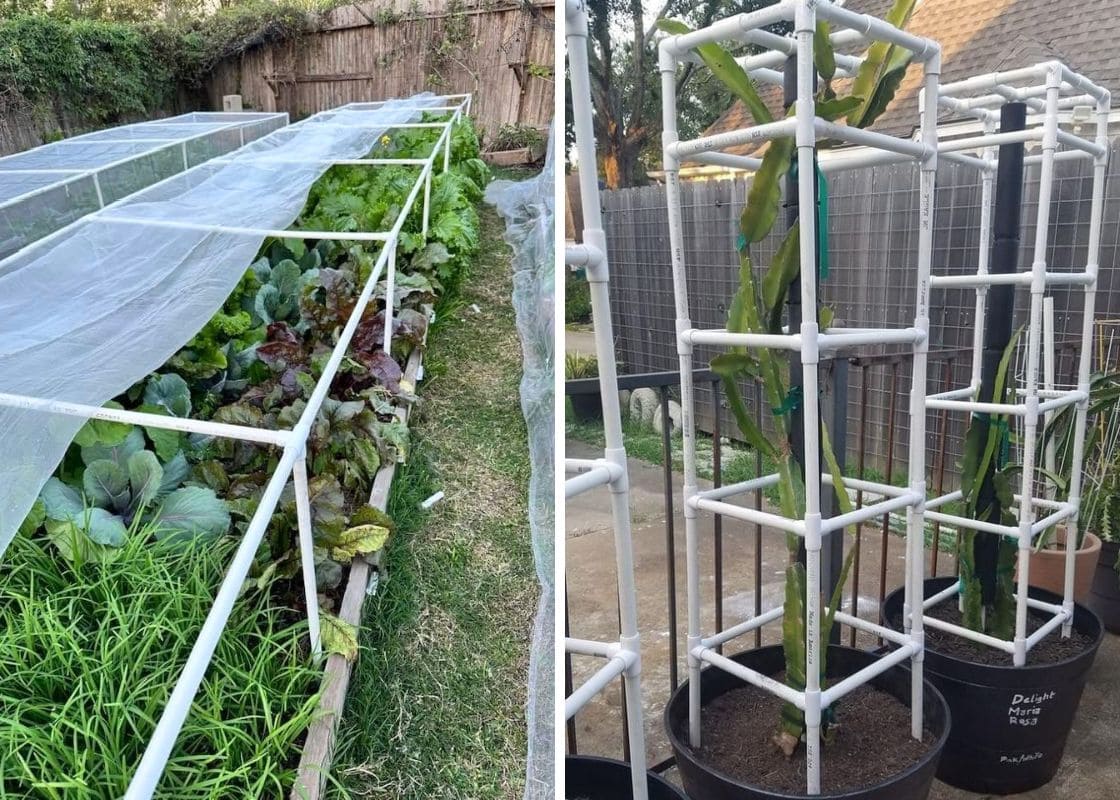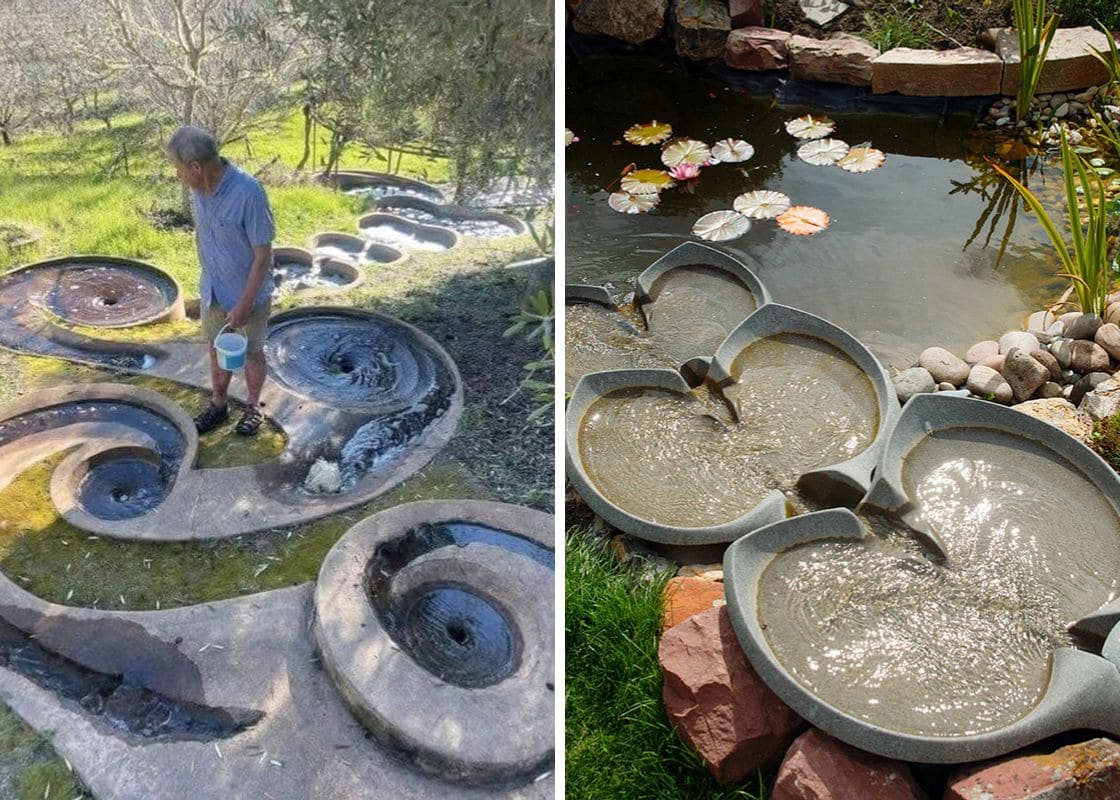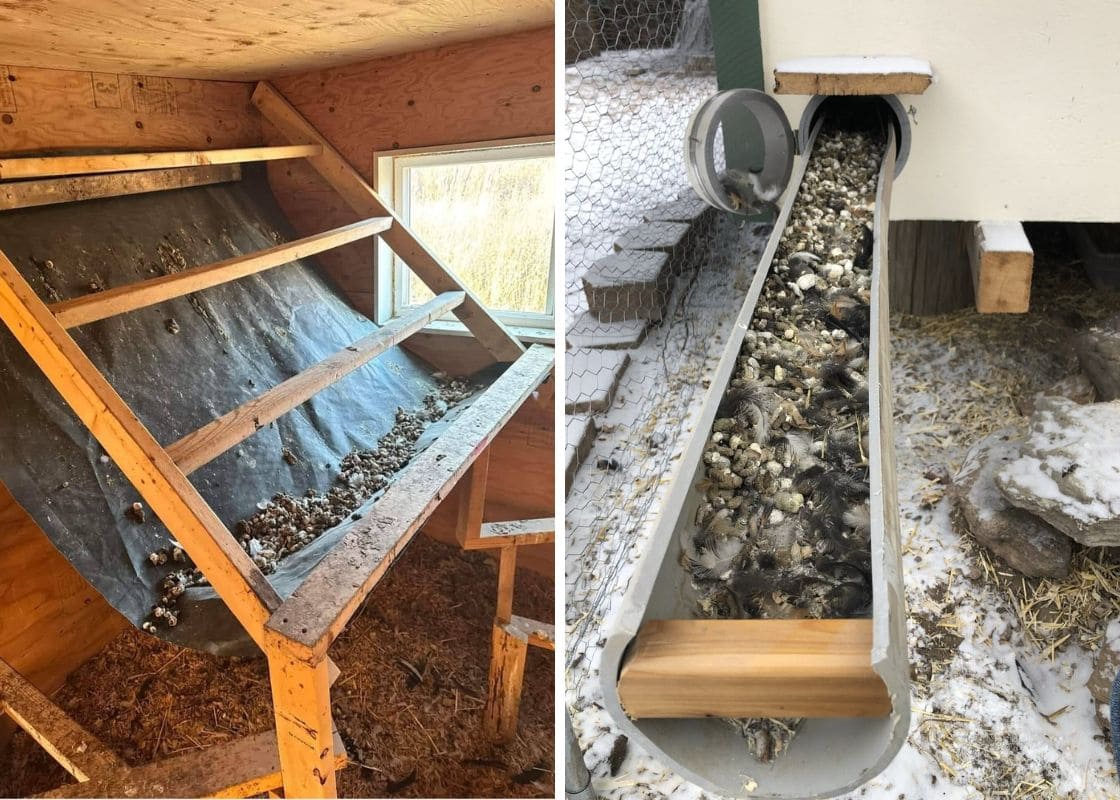Shiso tea, brewed from the leaves of the shiso plant (Perilla frutescens), is a delicious and aromatic herbal beverage with a rich history in traditional Asian medicine.
Known as perilla or Japanese basil, shiso is a staple in East Asian cuisine and gardening.
Its ability to repel pests and enrich soil health makes it a favorite among gardeners, while its health benefits are celebrated worldwide.
#1. Packed with Antioxidants
Shiso tea is a powerhouse of antioxidants like rosmarinic acid, quercetin, and flavonoids, which protect the body from oxidative stress.
A study published in the Journal of Medicinal Food found that shiso’s antioxidants reduce inflammation and protect cells, making it beneficial for preventing heart disease and neurodegenerative disorders.
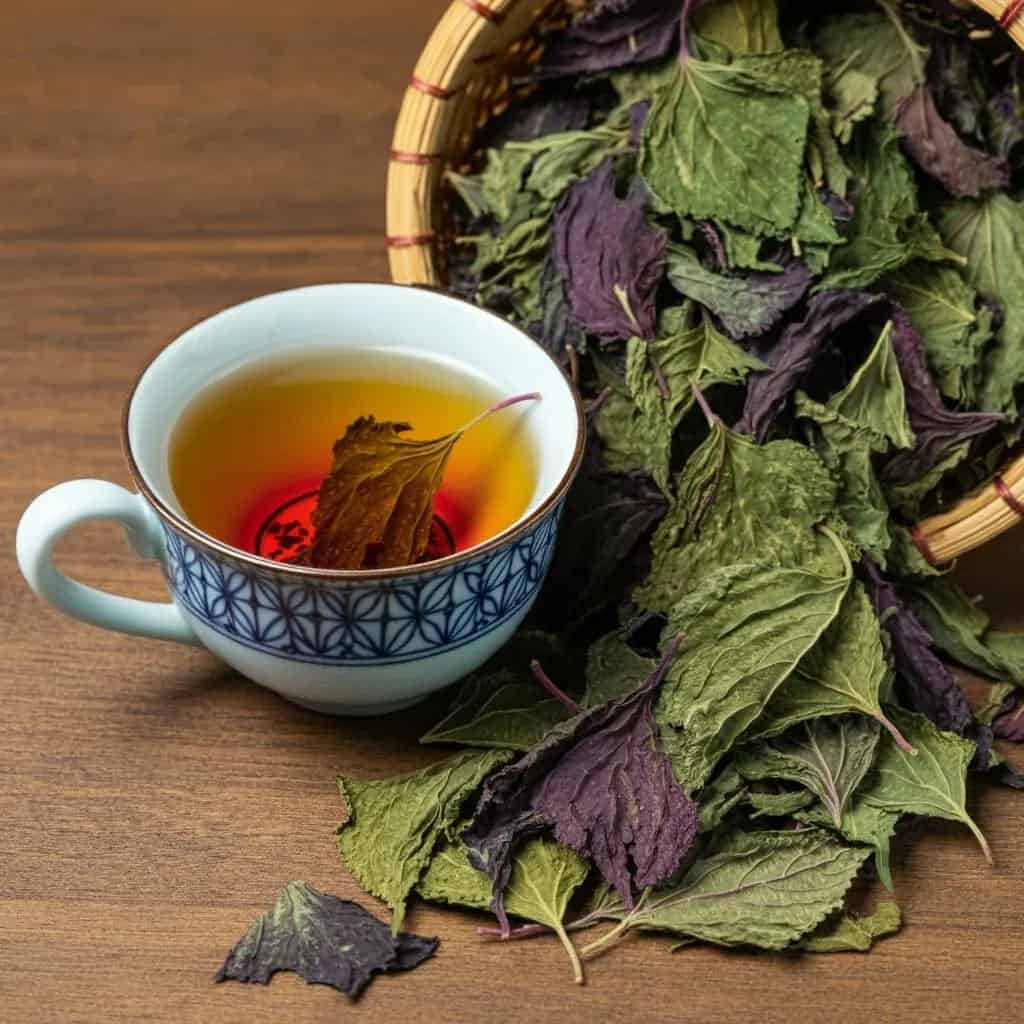
#2. Boosts Immune Health
Rich in vitamin C (18% of the daily recommended intake per cup), shiso tea strengthens the immune system by supporting the production of white blood cells.
The antimicrobial compounds in shiso leaves, such as perillaldehyde, fight bacteria and viruses, making this tea an excellent choice during cold and flu season.
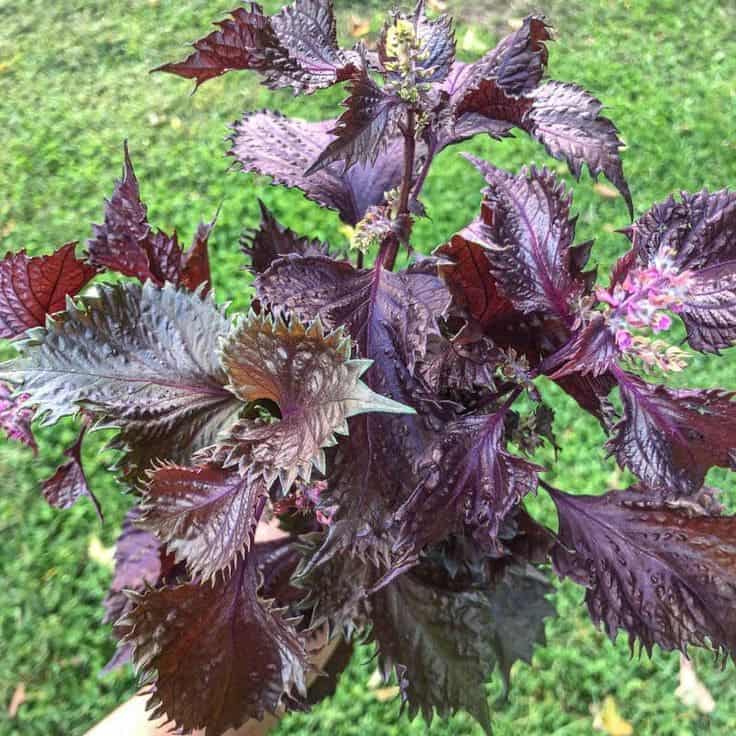
#3. Aids Digestion
Shiso tea is widely known for stimulating the production of digestive enzymes, which aids in breaking down food more effectively.
The tea also helps soothe the stomach lining, reducing symptoms like bloating, acid reflux, and indigestion.

#4. Anti-inflammatory Power
The rosmarinic acid and luteolin in shiso tea are potent anti-inflammatory agents.
These compounds work to reduce swelling and inflammation throughout the body, making the tea beneficial for managing conditions like arthritis and muscle soreness.

#5. Natural Allergy Relief
Shiso tea acts as a natural antihistamine due to the presence of perillaldehyde and rosmarinic acid, which help regulate the immune response to allergens.
This makes it effective for reducing symptoms like sneezing, runny nose, and itchy eyes caused by seasonal allergies or hay fever.

#6. Promotes Respiratory Health
The antimicrobial and anti-inflammatory properties of shiso tea make it a soothing remedy for respiratory conditions.
Whether you’re dealing with a sore throat, nasal congestion, or asthma, sipping on shiso tea can provide relief.

#7. Enhances Skin Health
Shiso tea’s antioxidants, like beta-carotene (7% of the daily value per cup), help protect skin cells from damage caused by environmental pollutants and UV radiation.
Its detoxifying properties also help flush toxins from the body, leading to clearer, healthier skin. The omega-3 fatty acids in shiso tea further support skin hydration and repair.
#8. Relieves Stress and Promotes Relaxation
Shiso tea’s naturally soothing aroma and mild flavor make it an excellent stress reliever.
Compounds in the tea, such as apigenin, help regulate cortisol levels, promoting relaxation and mental clarity.
#9. Supports Weight Management
Low in calories and rich in metabolism-boosting compounds, shiso tea is a great addition to a weight management plan.
The tea also contains compounds that regulate fat metabolism, supporting healthy weight loss when combined with a balanced diet and exercise.

#10. Detoxifies the Body
Shiso tea supports the liver’s detoxification processes, helping eliminate toxins and excess waste from the body.
Its diuretic properties promote kidney health by encouraging the removal of excess water and salts, ensuring better overall detoxification.
How to Make Shiso Tea
You need to prepare:
- 1 cup of water
- 1 tablespoon of fresh or dried shiso leaves (red or green)
- Optional: a slice of lemon or a teaspoon of honey for added flavor
Instructions:
First, you boil the water and pour it over the shiso leaves in a mug or teapot. Let it steep for 5–7 minutes, depending on how strong you like your tea.
Next, strain the tea into a cup and add honey or lemon for extra flavor if desired. Finally, enjoy this soothing tea hot or chilled, depending on your preference.
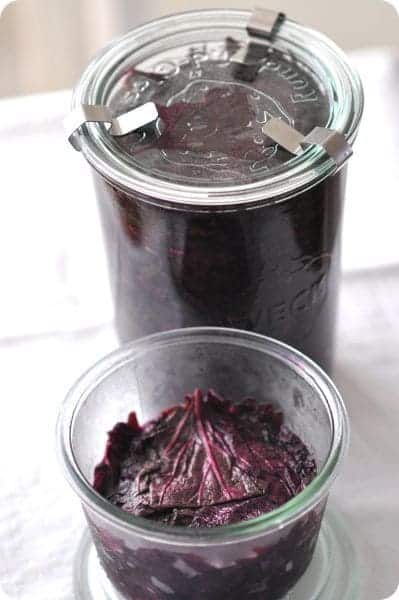
Caution and Precautions
Individuals allergic to plants in the mint family should use caution. You just stick to 1–2 cups daily.
Besides, limited research exists on shiso’s effects during pregnancy, so you should consult your healthcare provider before use.
Disclaimer
This article is for informational purposes only and should not replace professional medical advice, diagnosis, or treatment.
Always consult a healthcare provider before starting any new dietary or herbal regimen, especially if you are pregnant, breastfeeding, or taking medication.
